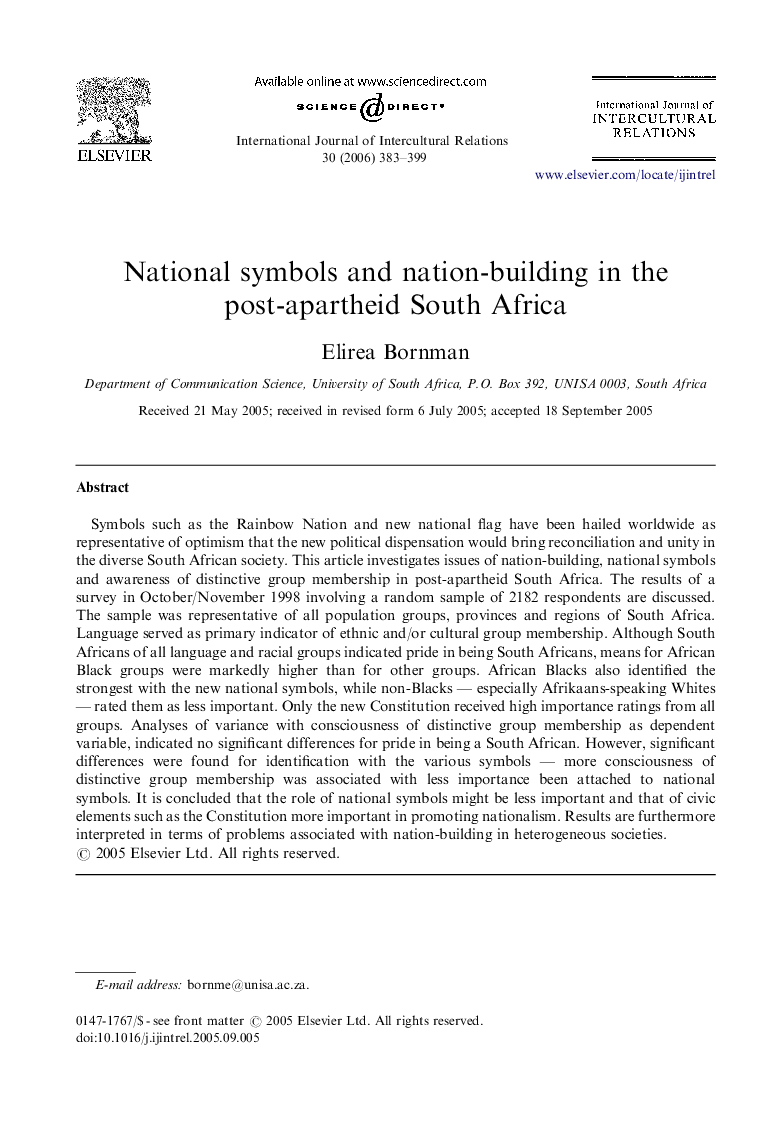| Article ID | Journal | Published Year | Pages | File Type |
|---|---|---|---|---|
| 947644 | International Journal of Intercultural Relations | 2006 | 17 Pages |
Symbols such as the Rainbow Nation and new national flag have been hailed worldwide as representative of optimism that the new political dispensation would bring reconciliation and unity in the diverse South African society. This article investigates issues of nation-building, national symbols and awareness of distinctive group membership in post-apartheid South Africa. The results of a survey in October/November 1998 involving a random sample of 2182 respondents are discussed. The sample was representative of all population groups, provinces and regions of South Africa. Language served as primary indicator of ethnic and/or cultural group membership. Although South Africans of all language and racial groups indicated pride in being South Africans, means for African Black groups were markedly higher than for other groups. African Blacks also identified the strongest with the new national symbols, while non-Blacks — especially Afrikaans-speaking Whites — rated them as less important. Only the new Constitution received high importance ratings from all groups. Analyses of variance with consciousness of distinctive group membership as dependent variable, indicated no significant differences for pride in being a South African. However, significant differences were found for identification with the various symbols — more consciousness of distinctive group membership was associated with less importance been attached to national symbols. It is concluded that the role of national symbols might be less important and that of civic elements such as the Constitution more important in promoting nationalism. Results are furthermore interpreted in terms of problems associated with nation-building in heterogeneous societies.
